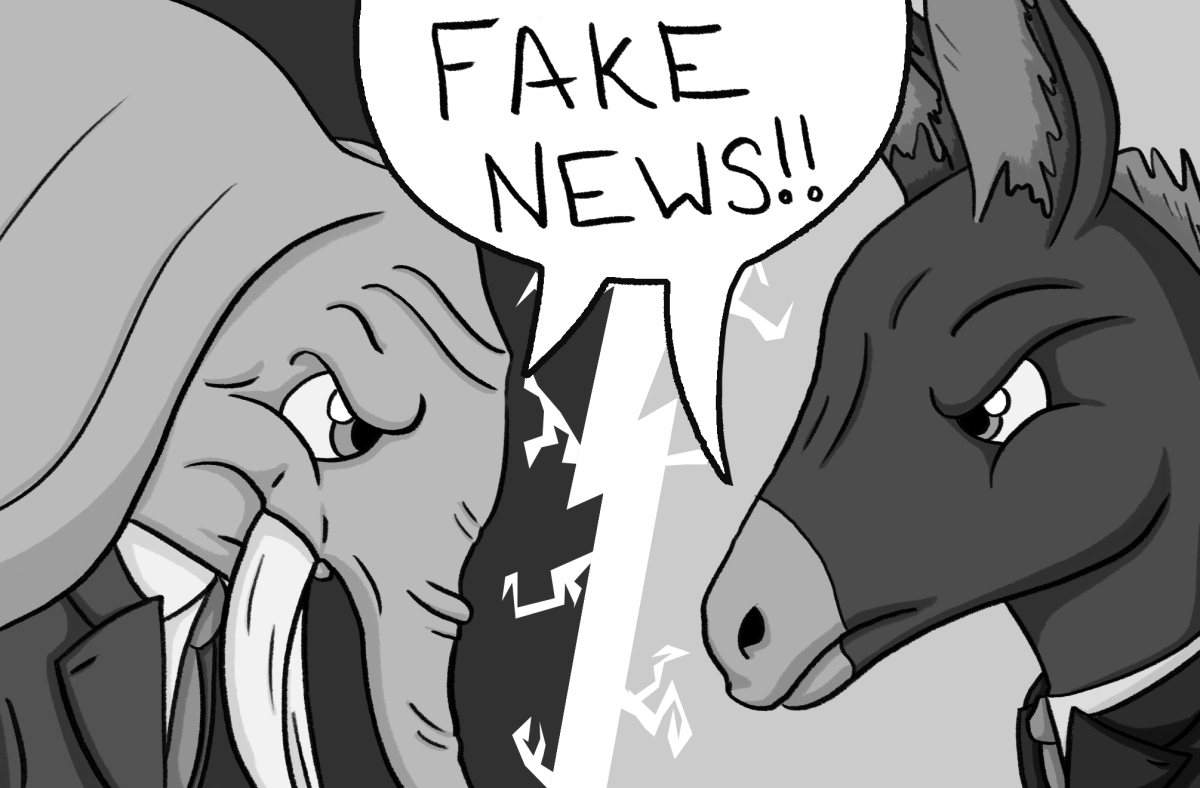As the growing political divide in this nation continues to expand its reaches, accusations against the media’s ‘fake news’ and contribution to polarization are increasing. Despite this negativity, it is important to note that journalists have a responsibility to report the facts without bias.
A journalist’s purpose is to provide the public with information to help them make an informed decision — a goal every reporter hopes to achieve. The fact of the matter is, however, that much like the public, journalists are also human and err in letting their political affiliations and nuances interfere with reporting. This, of course, excludes journalists who use their platform to spread their own prejudices.
While the media aims to be the middleman, the majority of major news organizations lean one way or another politically. It is astounding how much that preference affects the news that needs reporting. Take, for example, coverage from traditionally conservative news organizations, such as Fox, and the coverage from more liberal outlets such as MSNBC. Though the news itself will be the same, the manner in which it is handled and reported might differ, depending on which way the station leans. In a Pew research study conducted during the 2012 election, only 6 percent of all Fox coverage of Obama’s campaign held a positive tone, whereas MSNBC’s coverage of Obama was around 39 percent positive, reflecting this bias in the media.
Not only does this partial coverage affect what is being reported, but so does overall news judgment. The manner in which CNN handled the Trump wrestling GIF, for instance, is a prime example of what should not be reported. Back in early July, CNN threatened to release the name of the Reddit user who posted a GIF video of Trump tackling a man with the CNN logo in place of his face if he did not issue an apology. While the GIF was seen as insulting, according to CNN, the Reddit user said “(CNN) should have used their better judgment, since the president tweets things off the cuff, it’s a kneejerk reaction.” News organizations should be focusing more on the big picture rather than waste their time and resources to investigate GIFs that the president tweets.
Despite the pattern, it is important to note that journalists are not the enemy. It is, as mentioned before, a journalist’s role to provide accurate, factual information so informed citizens can make decisions. That also entails uncensored topics that are typically hard to swallow or taboo. Journalists who report on negative information, like the scandal involving the Trump family’s ties to Russia for instance, shouldn’t be construed as the media trying to attack him, but rather just doing their job and investigating the facts.
It is important to know that real journalists strive to report only factual information while maintaining an attitude as close to neutral as possible. That being said, journalists have been responsible for providing a slant in the information they are reporting, and will probably continue to do so. After all, it is difficult to keep one’s own opinion out of the situation.
Regardless, it doesn’t mean everyone gets to automatically call everything ‘fake news’ because they don’t like it. Ever since this term was coined, citizens have utilized it anywhere it is applicable, causing an uproar in the realm of the media by blurring the lines between actual news and ‘fake news.’ In a 2016 study, Pew Research Center shows that 64 percent of U.S. adults claim ‘fake news’ is causing a great deal of confusion in what is fact or fiction, providing a backup to the network of shared knowledge.
So how do we fix this? For starters, keep in mind that just because certain news organizations have tarnished the reputation of the media does not mean all outlets aim to take down major organizations. I strongly suggest doing your research and begin following reputable organizations you align with and trust. There is no solution in victimizing journalists, and though your views might not align with all outlets, keep yourself updated with what is happening on the other end of the political spectrum by following unbiased news sources like Associated Press and not believing every ‘news’ story that pops up on your Facebook feed.

















